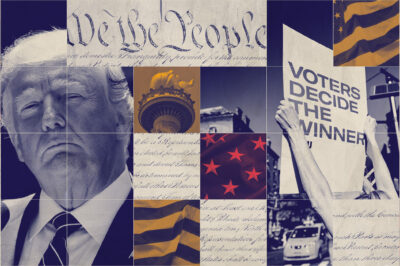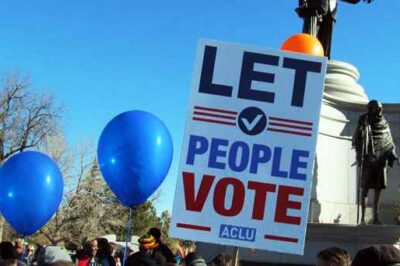Mr. Smith Goes to Washington.com: How a Small-Town Internet Speaker Tripped Over Campaign Finance Regulations
FOR IMMEDIATE RELEASE
WASHINGTON -- Deeply frustrated with congressional efforts to impeach President Clinton, Leo Smith last year decided to do more than complain. An experienced Internet user, he did what seemed easiest and most effective: he added a new section to his website to advocate the defeat of his representative and urged voters in his corner of Connecticut to elect Charlotte Koskoff in her stead.
Days later, Koskoff's campaign manager contacted Smith -- not to thank him but to warn him of the possible legal problems he might face over the site. Smith soon learned he had entered the twilight zone of campaign finance regulations.
After a series of conversations with the FEC, Smith was told, in essence, that he was in violation of federal law because he had spent more than $250 in expressing his political views without disclosing his identity and filing the required reports with the federal government.
How did the FEC arrive at that $250 figure? Smith had already been operating a web site for his business; it cost him nothing but his time to add a section advocating Rep. Nancy Johnson's defeat.
But that wasn't enough for the FEC. In an advisory opinion issued at Smith's request, the FEC said that it determines the value of web sites by counting, among other factors, the cost of the computer hardware and software used to create the site. If the computer cost more than $250, the FEC said, its owner would have to meet the filing and disclosure requirements of federal law. Using that logic, if the computer cost more than $1,000, its owner would have to register as a political action committee.
"Forget about free speech," Smith told the American Civil Liberties Union in an interview, "if you can't advocate what you want for an election, that strikes at the heart of our democracy."
Smith told the agency that he was not going to comply with its onerous regulations and refused to take down his website. Informed by an FEC attorney that he ran the risk of having legal action taken against him, Smith basically dared the agency to try.
"I told them that I was definitely not going to take my site down, I was not going to file the reports and I was not going to post my name on the site," he said. "I told them that from a free speech standpoint, they were totally out of line."
With the campaign finance issue returning to the Senate floor this week, the ACLU said that Leo Smith's encounter with the FEC and its Orwellian mindset goes to the core of what is at stake as Congress and the courts struggle with revising the nation's election laws.
"Leo Smith's story proves our fundamental point: you cannot divide money and speech," said Laura W. Murphy, Director of the ACLU's Washington National Office. "To argue otherwise, is to ignore reality."
Smith's story encouraged Sens. Robert Bennett, R-UT, Slate Gorton, R-WA, and Mitch McConnell, R-KY, to offer an amendment that would exempt political speech on the Internet by individual citizens from regulation by the federal government.
The ACLU said it enthusiastically supports the Bennett amendment and urges its adoption, but remains opposed to the main campaign finance proposal offered by Sens. John McCain, R-AZ, and Russ Feingold, D-WI.
"The Internet allows anyone with a phone line, as the Supreme Court said, to become a 'town crier with a voice that resonates further than it could from any soapbox,'" Murphy said. "Congress must act to ensure that the FEC does not gag the new town criers."
On the underlying bill, however, Murphy said that the "limit-driven approach represented by McCain-Feingold has proven to be a bogus reform."
"Limits have not -- and cannot -- prevent corruption and they necessarily enhance inequality and therefore make elections more unfair. Moreover, they inevitably lead to curbs on speech that everyone agrees should be protected by the First Amendment," she added.
Rather than continuing to focus on campaign finance proposals that are doomed to failure in the courts, the ACLU urged Congress to take seriously the idea of public financing for all federal elections.
"Not withstanding the nay-sayers who pronounce public financing dead on arrival," Murphy said, "we remind Congress that our nation once had a system where private citizens and political parties printed their own ballots."
It later became clear, Murphy explained, that to protect the integrity of the electoral process, ballots had to be printed and paid for by the government. For the same reason, the public treasury pays for voting machines, polling booths and registrars.
"We take it as a fundamental premise that elections are a public, not private, process," Murphy said. "If we are fed up with a system that some say allows too much private influence, then we must fix it by acknowledging that the government must fully finance elections."
Stay Informed
Sign up to be the first to hear about how to take action.




